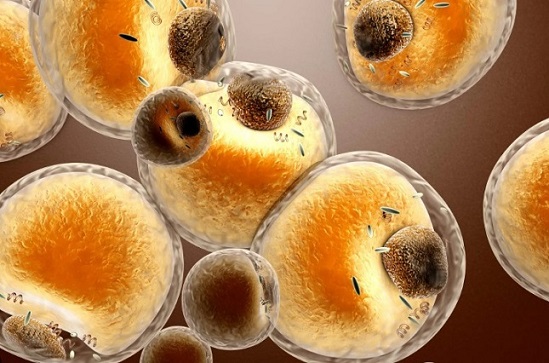Nikhil Prasad Fact checked by:Thailand Medical News Team Jul 14, 2025 7 months, 1 week, 2 days, 22 hours ago
Medical News: SARS-CoV-2 Variants Found to Exploit Human Metabolism to Enhance Viral Replication
A new study by scientists from Oregon Health & Science University and the Pacific Northwest National Laboratories has revealed how different strains of the SARS-CoV-2 virus—including the original WA1, Delta, and Omicron variants—systematically hijack the body’s metabolic systems, especially lipid and protein pathways, to support their own survival and spread.
 SARS-CoV-2 Variants Hijack Fat and Protein Pathways to Thrive
SARS-CoV-2 Variants Hijack Fat and Protein Pathways to Thrive
According to the new study covered in this
Medical News report, the researchers found that despite genetic differences between the variants, all three manipulate host lipid metabolism in highly similar ways. They discovered that SARS-CoV-2 rewires essential lipid-producing and protein-regulating networks in infected human lung cells, suggesting a deeply conserved strategy the virus uses to replicate effectively across different strains.
The Experiment and Tools Used
The team used A549-ACE2 cells (human lung epithelial cells) infected with each viral strain and analyzed the effects over 24 and 48 hours. Through a process combining lipidomics (the study of cellular fats) and proteomics (the study of proteins), they identified how the virus altered the cells’ internal machinery.
They detected changes in over 443 lipid species and thousands of proteins. Some lipid classes, especially ceramides, dihydroceramides, and hexosylceramides, were significantly increased—up to 16 times more than in uninfected cells. This was linked to reduced levels of enzymes like ORMDL2 and DES1 that normally suppress excessive lipid production. The viral infection also ramped up fatty acid and glycerolipid production while limiting lipid degradation.
Why This Matters for Long COVID and Future Treatments
The virus seems to depend heavily on these lipid alterations. When researchers treated the infected cells with specific drugs that block lipid production—like FB1 and myriocin for sphingolipids, and FASN inhibitors for fatty acids—viral replication dropped by over 75%.
This shows that these metabolic changes are not random damage but are intentionally exploited by the virus for its own gain. Targeting these pathways could provide a promising new approach for treating not only COVID-19 but its long-lasting aftermath, long COVID.
Moreover, the findings may explain why long COVID symptoms linger—many of the hijacked metabolic processes are tied to mitochondria, the energy-producing parts of our cells. Disruptions here could lead to chronic fatigue, inflammation, and other long-term effects.
The Bigger Picture
Importantly, the study found that these manipulations were consistent across variants, despite the virus evolving rapidly in other areas, like the spike protein. This suggests that targeting these conserved host pathways could lead to antiviral treatments that rem
ain effective even as the virus mutates.
The researchers emphasize that the virus’s strategy includes altering enzyme activity, shifting enzyme locations within cells, and adjusting lipid production levels—not just turning genes on or off. This adds a layer of complexity, but also opportunity, for new drug development.
Conclusion
This comprehensive analysis sheds light on how SARS-CoV-2 strains, regardless of their genetic mutations, exploit the body’s lipid and protein metabolism in a consistent manner. These metabolic rewiring strategies, especially involving sphingolipids and fatty acids, appear to be essential for the virus to replicate and survive. Blocking these pathways could pave the way for long-lasting therapies that bypass the limitations of spike-protein-targeted treatments.
The study findings were published in the peer reviewed Journal of Lipid Research
https://www.sciencedirect.com/science/article/pii/S0022227525001221
For the latest COVID-19 News, keep on logging to Thailand
Medical News.
Read Also:
https://www.thailandmedical.news/news/sars-cov-2-hijacks-steroidogenesis-and-lipid-metabolism-in-male-reproductive-cells-to-fuel-its-replication
https://www.thailandmedical.news/news/study-reveals-how-lipid-droplets-worsen-flu-and-help-viral-spread-while-statins-can-combat-iav-viruses-including-h5n1
https://www.thailandmedical.news/news/covid-19-news-german-and-swiss-study-finds-that-human-pbmcs-form-lipid-droplets-in-response-to-sars-cov-2-spike-proteins
